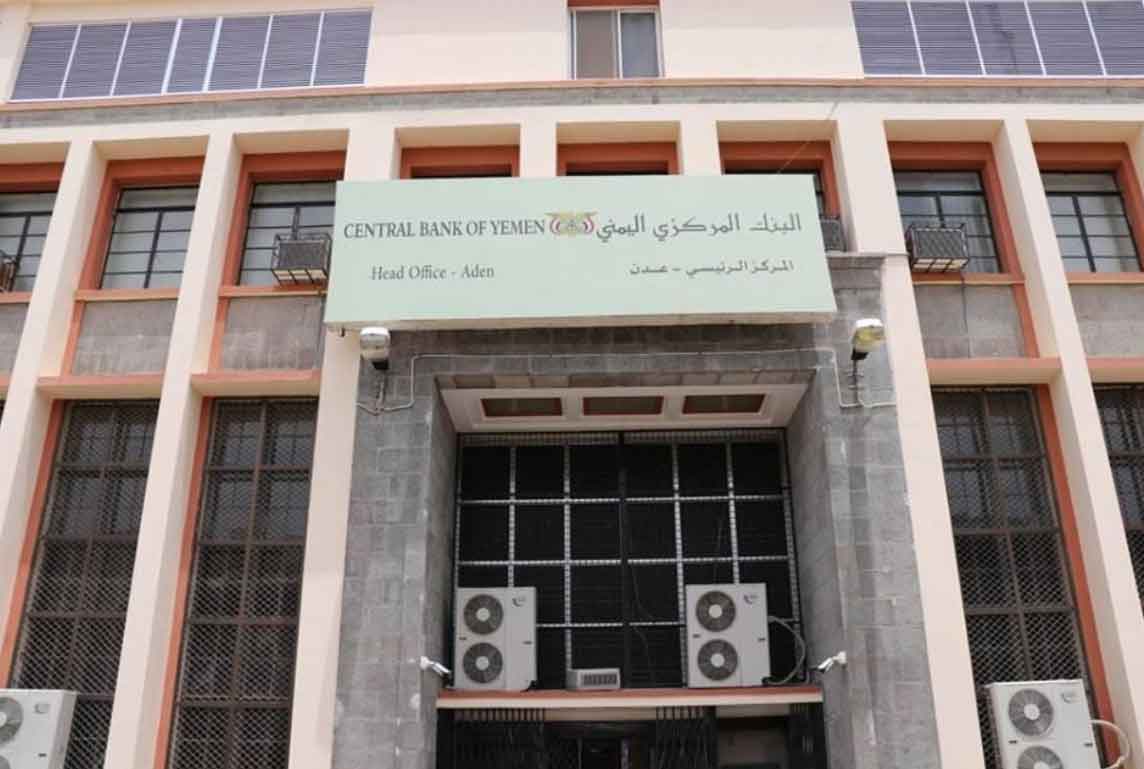


Barran Press
Aden, Yemen's interim capital, witnessed a significant move by the Central Bank of Yemen on Thursday, June 27th, 2024, as it suspended the licenses of two exchange companies and closed their branches across the country. This action is part of the bank's ongoing efforts to regulate the banking sector.
In separate decisions, the Central Bank of Yemen halted the operations of "Al-Marri and Al-Majrabi" exchange companies, closing their branches until further notice.
The bank attributed the closures to violations committed by the companies, citing a field inspection report submitted by the Banking Supervision Sector on June 24th, 2024.
On Wednesday, June 26th, 2024, the Governor of the Central Bank of Yemen in Aden issued a directive completely halting the operations of several local money transfer networks owned by banks, financial institutions, or exchange companies operating within the country.
The decision, published on the bank's official website and seen by Barran Press, emphasized the need for banks, financial institutions, and exchange companies to liquidate pending transactions within their respective transfer networks within fifteen days from the date specified in Article 2 of the decision.
Regarding unpaid transfers not yet delivered to recipients, the decision mandated the submission of a report to the Central Bank of Yemen's headquarters in Aden, accompanied by detailed information on these transfers, within twenty days from the specified date.
The decision further obligated all exchange companies, agents, and transfer networks to conduct all new domestic financial transactions exclusively in cash through the Unified Money Transfer Network (UNMONEY) starting from the date of issuance. However, bank-owned networks were exempted from immediate implementation and could continue conducting domestic transfers alongside the Unified Network until July 30th, 2024.
The decision prohibited any domestic financial transfer operations in cash, whether for sending or receiving, through any other means or method, except for licensed electronic wallets and payment service providers within approved limits according to regulatory guidelines.
The bank emphasized that the Unified Network's operations are subject to its supervision and control within the framework of existing laws, relevant decisions, and regulatory and supervisory procedures. It also stressed the need for banks, financial institutions, and exchange companies to submit periodic data, reports, records, and statistics as deemed necessary by the Central Bank, in the manner and timeframe it specifies.
Article 4 of the decision warned of legal action, including license revocation, suspension of operations, and appropriate financial penalties, against any banks, financial institutions, exchange companies, or transfer agents violating this decision or its implementing or related instructions.
Earlier, the Central Bank in Aden had instructed all commercial banks and exchange companies to utilize the Unified Money Transfer Network, established in February 2024, to regulate financial transfer operations.
These measures are part of broader efforts to address challenges facing Yemen's financial system, impacted by the violations of the Houthi group, internationally designated as a terrorist organization. The division of the Central Bank into two branches, one in Sana'a under Houthi control and another in Aden recognized internationally, has created an economic divide, hindering the stability of the Yemeni rial.